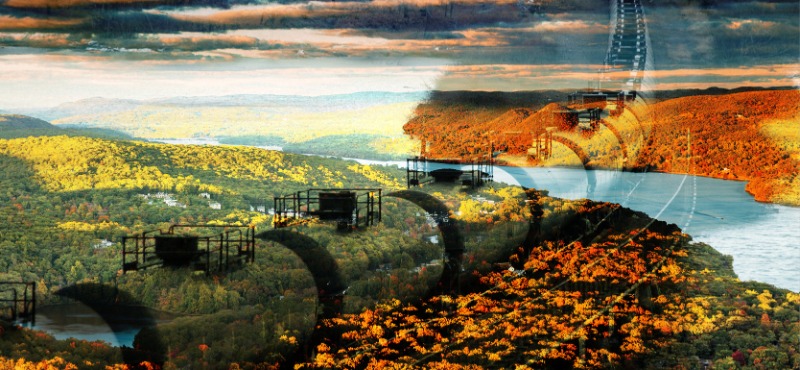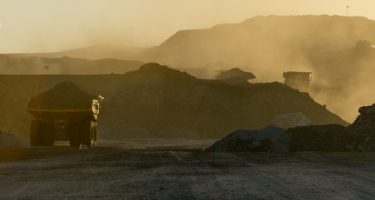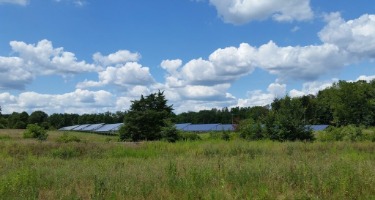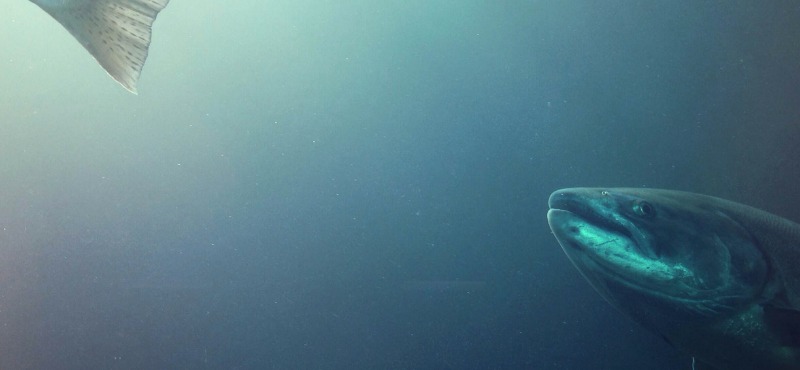People love New York’s Hudson Valley for its blend of natural beauty and culturally rich towns and cities, all connected by the river that gives the area its name. As an attorney with the nonprofit Scenic Hudson, I help protect these communities and their natural resources from damaging proposals and policies. We accomplish a lot through legal battles, but day to day I’m advocating, building coalitions, and organizing concerned citizens. Scenic Hudson’s experts join allies to take on large companies—and sometimes, even, we win.
Scenic Hudson got its start in 1963, when a handful of people got the bold idea to oppose a Con Edison hydroelectric facility that would literally have cut into Storm King Mountain along the Hudson River. In 1965, the historic “Scenic Hudson Decision” issued by the Second Circuit Court of Appeals granted citizens legal standing for the first time based on a special interest in the environmental, aesthetic, and recreational effects of a given proposal—and environmental law was born.
Scenic Hudson retains this DNA, continuing our advocacy in the backyard of the nation’s largest city. We’re never short of fights to wage, as one recent tussle—seeking to prevent the Hudson from becoming a crude-oil superhighway—amply illustrates.
The Hudson provides so much: natural beauty, recreation, commercial transportation. All its benefits are important. But beginning in 2012, unprecedented transport of a uniquely dangerous material began on the Hudson, with Global Companies, LLC—a Massachusetts-based freight-logistics company—handling at its Albany terminal crude oil from the Bakken Formation in North Dakota. The facility could hold up to 2.2 billion gallons per year. Bakken crude is extremely flammable; it captured widespread attention in 2013 when a train full of it derailed and exploded in Lac-Mégantic, Quebec, killing 47.
Global Companies also proposed to extend its Albany terminal to be able to handle asphalt-like tar-sands crude, which is nearly impossible to clean up if spilled. Overnight New York’s capital had become a major transshipment hub for crude oil, turning the Hudson River into a virtual pipeline. The crude moved via 100-car trains—in the same deficient railcars involved in the Canadian disaster—down the western shore of the Hudson, and in barges and tankers.
Communities nationwide have grappled with similar hazards. Elevated crude production has brought derailments and barge and tanker accidents throughout North America, causing dozens of deaths and steep economic and environmental damage. Alongside our environmental and public-interest partners, community groups, and elected officials, Scenic Hudson took action to stem this threat. The U.S. Department of Transportation, meanwhile, was issuing regulations in an attempt to make railcars safer. Determining more was needed, Congress in 2015 passed FAST (the Fixing America’s Surface Transportation Act) to upgrade the nation’s crude rail fleet. Around the same time, Scenic Hudson and partners filed lawsuits to halt the escalation of crude coming through Albany.
While we continued to battle Global Companies in court, in early 2016 the U.S. Coast Guard issued an Advance Notice of Proposed Rulemaking, seeking to create 43 new anchorage berths for industrial barges along a 70-mile stretch of the Hudson just north of New York City. The maritime industry sought the change because of the enormous increase in crude-oil vessels—the river was being eyed, essentially, as a floating storage lot for dangerous chemicals. We rallied public officials and citizens alike to submit more than 10,000 comments during the mandated public comment period opposing new anchorages. The Coast Guard was prompted by this overwhelming response to conduct a Ports and Waterways Safety Assessment to reevaluate the need for new anchorages, resulting in a March 2018 decision not to move forward with new anchorages for the time being.
That May, Global Companies announced it was seeking a modified permit to significantly reduce the amount of Bakken crude handled at its Albany facility and would withdraw its tar-sands crude plans. Now, with far less crude being shipped on the Hudson, better railcars and no new anchorages, the Hudson Valley is substantially safer. As an environmental nonprofit, Scenic Hudson typically defends the “little guy” against much more powerful interests—meaning victory can be elusive. Only through strong partnerships with other environmental and public-interest groups, community organizations, and elected officials have we been able to make strong moves to stanch the flow of crude down a treasured American river.
Witnessing all this from the other side, companies might want to consider how to proactively engage communities in which they’re proposing potentially controversial projects. Taking the pulse of the locals, working to address their concerns, and being transparent go a long way toward lessening opposition. Soliciting stakeholder input early can help turn public opinion and enable a company to incorporate community suggestions while its plans are still in development.
Focusing solely on investor benefits, by contrast, can lead companies to be blindsided by legitimate concerns about impacts to the environment, the community’s character, and scenic natural resources. Getting feedback from stakeholders at the outset offers an opportunity to realize project goals that are more consistent with a community’s values—in the end perhaps paving the way for a smoother, shorter approval process for the project’s proponent.


























